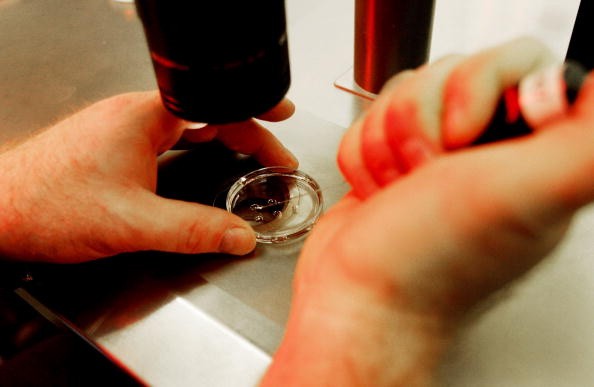The SKAN Research Trust was created by an Indian businessman named Ashok Soota. It has begun a significant research project with the Wellcome Sanger Institute and the University of Newcastle in the U.K.
These early somatic mutations in blood stem cells are thought to cause several illnesses. The group's main goal is to investigate these diseases.

New and Important Studies on Rare Blood Disorders
It's titled "Deciphering the Origins of Langerhans Cell Histiocytosis and Related Histiocytic Neoplasms," and Jyoti Nangalia, who is a Group Leader at the Wellcome Sanger Institute and Wellcome-MRC Stem Cell Institute, is in charge of it. The study is mainly about genetic changes that cause Langerhans Cell Histiocytosis (LCH), an immune cell disease mainly affecting kids ages 0 to 15. Researchers want to discover how the disease gets worse and how to stop it early by studying these changes and how they appear in the body.
As part of this project, experts will work with the world's best LCH treatment centers to investigate cases caused by genetic mutations. Thanks to SKAN, many Indian kids will be enrolled in the study, making the research more diverse and broad.
Ashok Soota said they were excited to work with the Sanger Institute and the University of Newcastle on a project that would benefit all three. He stressed the importance of learning about stem cell mutations and LCH, a cancer that doesn't receive enough funding. He also said that this study should lead to useful clinical tests that will help doctors better predict how their patients will do.
Regarding these diseases, Jyoti Nangalia said they are mysterious and probably have a unique genetic cause. She said that even though specific mutations are known to cause these disorders, it is still unclear how these events cause multiple tissues to be affected at different times in life or why the disease often appears in various ways in other people. She also talked about how the Sanger Institute's genomics study aims to help future patients by showing where these diseases come from and how they spread.
Professor Matthew Collin of Newcastle University will also play a big part in this partnership. He set up diagnostic and blood monitoring pipelines for LCH that the UK NHS Genomic Medicine Services now use.
He said it is great news for people who have these disorders that cutting-edge methods will be used to help us understand how they start. He was also thrilled about working with new partners in other healthcare systems on study and training.
Is it Legal to Study Stem Cells?
Stem cell research has a lot of legal and moral issues that need to be considered. It has the potential to make substantial medical advances. In the U.S., stem cell research is allowed in some states but not others. This is because of federal funding limits.
Using federal money to create or kill embryos for embryonic stem cell research is not allowed. Human embryonic stem cells (hESCs) can be used in studies that do not harm embryos. Different states have very different rules about stem cell research. Some governments, like California, Connecticut, and Massachusetts, even fund stem cell research in embryos and adults.
The Dickey-Wicker Amendment, enacted in 1996, states that federal monies cannot be used to create human embryos for study or to conduct research that destroys human embryos. This means that while embryonic stem cell research is not illegal, it cannot get government funding if it entails creating or destroying embryos.
The rules for stem cell studies have changed over time. Following restrictions imposed by President George W. Bush in 2001, the Stem Cell Research Enhancement Act of 2005 made it simpler for government monies to be used for hESC research. Once President Barack Obama issued Executive Order 13505, there were no more issues with ethical research involving human stem cells. This ended President Bush's ban on using government funds for hESC research.
Studying adult stem cells and induced pluripotent stem cells (iPSCs) is less controversial and has fewer boundaries. iPSCs are grown-up cells with their genes changed to look like embryonic stem cells. Because the government will pay to study these stem cells, they are a better choice for ongoing growth and research.
The SKAN Research Trust is starting a study with the Wellcome Sanger Institute and the University of Newcastle. The laws that govern stem cell research still affect the direction and potential of these ground-breaking studies.
RELATED ARTICLE : Human Stem Cells Can Be Converted Into Beta Cells Producing Insulin
Check out more news and information on Medicine & Health in Science Times.
© 2026 ScienceTimes.com All rights reserved. Do not reproduce without permission. The window to the world of Science Times.











